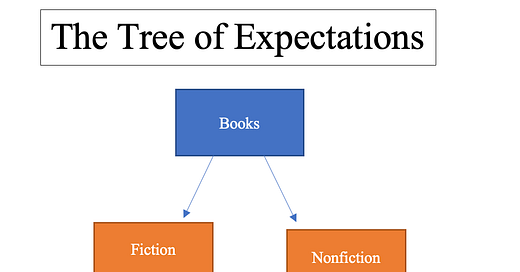Great Expectations and an Update on a Very Different Classic
What is the hardest kind of book to write? And our first whale "sighting."
Editor Breakdown: Expectations
In this reoccurring segment we embrace the double meaning
Keep reading with a 7-day free trial
Subscribe to Dear Head of Mine to keep reading this post and get 7 days of free access to the full post archives.



